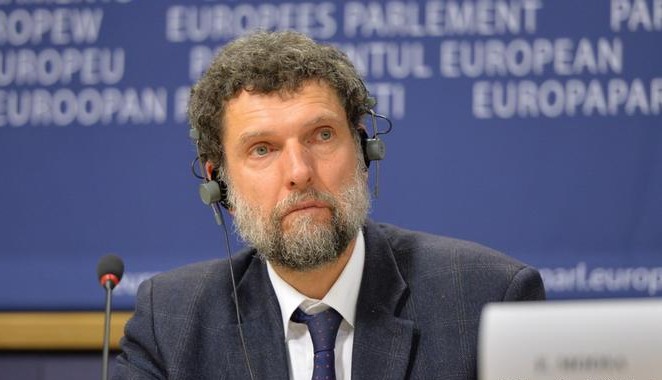Prominent businessman and civil society leader Osman Kavala has described a top court’s decision to uphold his and four others’ conviction in the Gezi Park trial as a product of a mentality that does not value the law or human life, the Anka news agency reported, quoting an opposition lawmaker.
Main opposition Republican People’s Party (CHP) lawmaker Enis Berberoğlu visited Kavala, who has been behind bars since November 2017, and several other Gezi Park defendants in Marmara Prison in İstanbul on Friday.
Berberoğlu’s visit came shortly after the Supreme Court of Appeals on Thursday upheld a life sentence for Kavala and 18-year prison sentences for human rights lawyer and Workers Party of Turkey (TİP) lawmaker Can Atalay, journalist and film producer Çiğdem Mater, city planner Tayfun Kahraman and filmmaker Mine Özerden.
The court also overturned the convictions of three other defendants in the trial, ordering them to be retried.
Berberoğlu, who spoke to Anka following his visit to Kavala and the others, said Kavala accepted news of the top court’s decision calmly and said: “This is a ruling that is the product of a mentality which disregards the law and human life.”
Kavala told Berberoğlu he learned about the court’s decision from the TV in his prison cell when he was writing a letter.
Berberoğlu said the only remaining legal remedy for Kavala is to take his conviction to the Constitutional Court, claiming rights violations.
The Gezi Park trial defendants were convicted of attempting to overthrow the Turkish government for their alleged role in the protests, which began over an urban development plan in central Istanbul and spread to other cities in Turkey.
The ruling sparked international condemnation as well as protests across Turkey for being politically motivated.
A leading figure in Turkey’s civil society, 66-year-old Kavala was born in Paris, educated in the UK and ran a cultural center before being thrust to prominence. He was accused of financing protests against the then-prime minister and current president Erdoğan’s government during the large-scale protests in 2013 and involvement in a failed military coup in 2016.
Kavala’s plight had soured relations between Ankara and Western nations, and a diplomatic crisis was triggered in 2021 when Turkey threatened to expel 10 Western ambassadors, including the US envoy, after they demanded Kavala’s release.
Turkey has refused to release Kavala despite the 2019 European Court of Human Rights ruling that found his detention was in pursuance of an “ulterior motive,” that of silencing him as a human rights defender. The non-implementation of the ruling prompted the Committee of Ministers to launch an infringement procedure against Turkey in February 2022, which is still ongoing.
